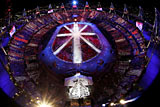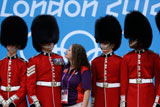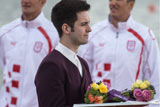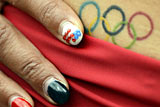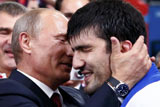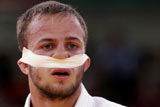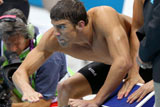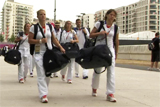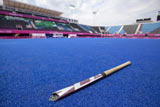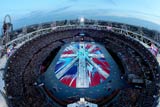Water Polo
Updated: 2012-05-15 10:16:44
(london2012.com)
|
|||||||||||
Water Polo developed during the 19th century as an aquatic version of rugby, played informally in rivers and lakes.
The version of the game that survives today is closer to Handball: a fast, tough and demanding sport, it has featured on every Olympic programme since the Paris 1900 Games.
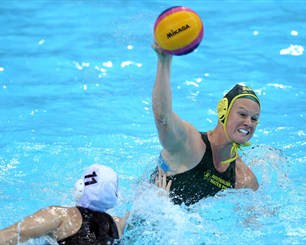 |
Competition dates
July 29 - Aug 12
Competition venue
Olympic Park - Water Polo Arena
Number of medal events
One men's and one women's competition.
Number of competitors
156 men and 104 women.
Each country is limited to one team in the men's and one team in the women's events. Twelve teams compete in the men's competition, eight in the women's. Teams consist of 13 players, but only seven are allowed in the water at any one time.
Field of play
The Water Polo pitch at London 2012 is 20m wide and 30m long for the men's event, and 25m long for the women's event. It is 2m deep (there is no shallow end). The goals at either end are 3m wide and 90cm high.
History of Water Polo at the Olympic Games
Developed during the 19th century, men's Water Polo has featured on every Olympic programme since the Paris 1900 Games. Women's Water Polo was introduced at the Sydney 2000 Olympic Games.
The basics
Played by teams of seven in a pool with a goal at each end, Water Polo is a thrilling spectacle.
Matches are divided into four periods of eight minutes. Starting with a race to the ball at the centre of the pitch, each team has only 30 seconds to attempt to score before the ball is returned to the opposition.
Players aren't allowed to touch the sides or the bottom of the pool during play, and may swim as much as three miles during a match.
Water Polo allows unlimited substitutions, although substitutes (as well as players who have been excluded for a short period for rule infringements) may enter the water only in a designated area in the corner of the pitch near each team bench.
Competition format
The men's and women's competitions at London will both begin with group play. The teams are divided into two groups, and each team will play every other team in its group. In the preliminary rounds teams receive two points for a win, one for a draw and nothing for a loss. From here, the competitions progress through quarter-final and semi-final rounds before the top two teams go head to head for the gold.
Officials
There are two referees, one on each side of the pitch and two goal judges, one at each end. They are assisted by two timekeepers and two secretaries.
On the podium
Water Polo is a fast and physically demanding game. Players need to have strength and stamina, as well as excellent swimming ability, ball skills and the ability to play tactically as a team.
Breaking the rules
Certain infringements, which include holding, sinking and pulling back an opponent who is not in possession of the ball (called ‘exclusion fouls'), can see a player being made to leave the water for up to 20 seconds. This leaves the other team with an extra player, giving them a real advantage.
Jargon buster
Ball under - a foul called on a player for taking or holding the ball underwater when an opponent tackles the player.
Dry pass - a pass in Water Polo that is designed to be caught before the ball hits the water.
Eggbeater - a powerful way of treading water, used in Synchronised Swimming and Water Polo.
Man-up play - players may be ejected for 20 seconds for selected infringements called ‘exclusion fouls', resulting in a man-up situation for his or her team's opponents.
Swim-off - a race for the ball in the centre of the pitch to start each period.
Medal Count |
||||
| 1 | 46 | 29 | 29 | |
| 2 | 38 | 27 | 22 | |
| 3 | 29 | 17 | 19 | |
| 4 | 24 | 25 | 33 | |
| 5 | 13 | 8 | 7 | |
| 6 | 11 | 19 | 14 | |

